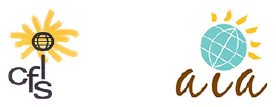Dr. Siegfried Hecker, Stanford University
February 19, 2016
U.S. Russian relations have moved from cooperation in the 1990’s to tension and adversity today. During the extremely difficult economic times following the collapse of the Soviet Union, Russia’s weapons scientists persevered to maintain the safety and security of their nuclear assets, with a significant assist from American nuclear scientists. Dr. Hecker will describe the nature of this unprecedented cooperation – how it flourished, diminished, and then collapsed as a result of the current political crisis in the Ukraine and now in Syria. He will also comment on how Russia views nuclear threats today and what it is doing to combat them, as well as touch on what options Washington may have to respond. Dr. Hecker will also briefly comment on technical issues in North Korea’s nuclear program and on his interactions with their scientists and citizens.
Dr. Siegfried S. Hecker is a research professor at Stanford University and a senior fellow at The Center for International Security and Cooperation (CISAC). He is also an emeritus director of the Los Alamos National Laboratory. Hecker’s research interests include nuclear weapons policy and international security, nuclear security (including nonproliferation and counter-terrorism), and cooperative nuclear threat reduction. When the Soviet Union collapsed, Dr. Hecker fostered lab-to-lab cooperation between the U.S. and the Russian nuclear laboratories and encouraged scientist-to-scientist interactions between U.S. and Russian weapons researchers. These initiatives produced unprecedented exchange visits of scientists and numerous fruitful technical collaborations to mitigate the nuclear threats arising at the Cold War’s end. Dr. Hecker has visited North Korea seven times in a nongovernmental nonofficial capacity to get a first-hand look at North Korea’s nuclear program. He works closely with U.S. government agencies to understand and attempt to mitigate the North Korean nuclear threat. Dr. Hecker’s research projects at CISAC focus on reducing the risks of nuclear proliferation and nuclear terrorism worldwide. He works closely with the nuclear establishments in China, India, Pakistan, and Iran, in addition to his work in Russia and North Korea. Hecker is also completing a book with Russian and American colleagues on the history of Russian-U.S. laboratory-to-laboratory cooperation since 1992.
Supported by and New Mexico Humanities Council, Sandia National Labs, Haverland Carter Lifestyle Group and The Albuquerque Journal
